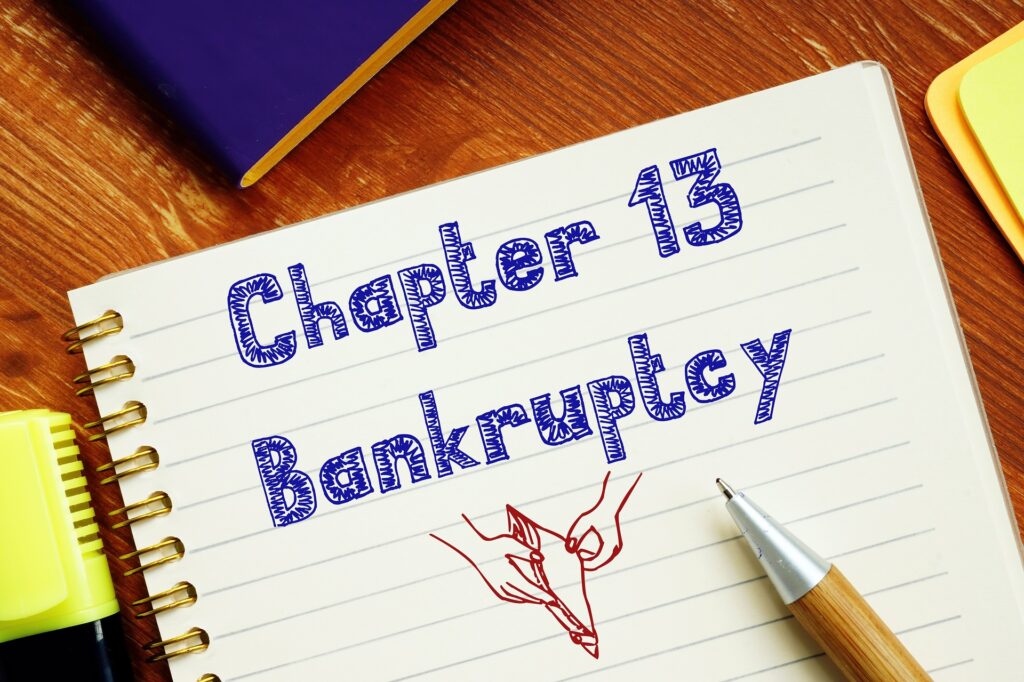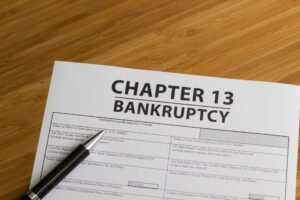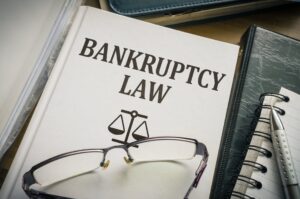Have you ever been curious about ways to reduce or eliminate your debts? Of course. We all have. America is going through a series of difficult economic upheavals that have affected everyone. Families struggle to make ends meet, and small business owners are plagued by rising costs. Fortunately, there are reasonable solutions to your debt crisis, and a Chapter 13 repayment plan is a powerful tool for protecting what matters most.
Chapter 13 is a form of bankruptcy that allows people with a regular income to develop a plan to repay part of their debts over three to five years. It’s not just a way out of debt. It’s a structured system that allows you to reorganize and renegotiate your debts so they don’t impact your future.
In this article, we’ll talk about how Chapter 13 works and how it’s different from other forms of bankruptcy. We’ll discuss how it can be used to protect your important assets and give you a new outlook on your financial future. Finally, we’ll look at the actual process for filing and see how an experienced and empathetic bankruptcy lawyer can put your mind at ease.
If you need relief from your debts, call Grady BK today.
What is Chapter 13 Bankruptcy?
Imagine Chapter 13 bankruptcy as a financial plan for a do-over. You go to bankruptcy court with a proposal on how to repay a percent of your debts over the next 3 to 5 years. The plan is like a budget. It considers how much money you make, what you spend on necessities, and what’s left to repay your debt.
Some debts take priority, like back taxes or missed mortgage payments. Those usually get paid back in full. Others, like credit cards, might get only a fraction of the original debt after negotiations are through. A court-appointed supervisor (called a trustee) oversees the whole process. You pay them, and they make sure your creditors get their agreed-upon share. At the end of the bankruptcy, the remaining unsecured debt is wiped away.
When you file, creditors are required to stop all communication with you immediately, which puts an end to harassing calls or letters. They can not sue you or demand any payment outside of the bankruptcy. It’s like a time-out from debt while you make improvements and work on your plan. You stick to this plan, and make steady payments over the next three to five years, which gives you a chance to catch up.
A Chapter 13 bankruptcy lets you reorganize your finances to keep the important assets that you need to earn a living. Each bankruptcy case is unique, so if you have questions about how Chapter 13 can help you, call Grady BK today.
Is Chapter 13 Only for Businesses?
No, Chapter 13 bankruptcy is designed for individual people. The average person can usually qualify and experience the benefits immediately. Chapter 13 is also used by small business owners and people who are self-employed. It’s sometimes called the “wage earner’s plan” because it’s intended for people with a regular income who want to reorganize their debts while keeping their assets.
Large businesses or corporations can use other chapters of bankruptcy under the U.S. Bankruptcy Code, like Chapter 7 or Chapter 11. Each chapter serves different purposes and is tailored to the specific types of people it’s designed for.
How Does Chapter 13 Help Me Keep My Assets?
Chapter 13 bankruptcy provides a structured way for people to manage their debts while keeping their assets. You would be unable to repay your debts if your house was repossessed or your car was sold off. You need to maintain a living to make payments, and you need to keep any assets that help you make that living. Likewise, small businesses won’t need to sell off the equipment that allows them to operate because that would make paying the debt more difficult.
Chapter 13 doesn’t require you to sell or give up your property. In fact, Chapter 13 is specifically used to prevent foreclosure on a home or repossession of a car. Your repayment plan will include details for how you will catch up on mortgage loans or car payments, so you can keep the things you need most.
What Are Chapter 13 Exemptions in New York?
In New York, certain laws govern the Chapter 13 process, and a few important exemptions determine what property you can keep. Our state provides a homestead exemption for your primary home and a personal property exemption that covers household goods, furnishings, and clothing. There are even separate exceptions for cherished jewelry or the family car.
New York’s wild-card exemption provides protection for any personal property of your choice as long as it’s not real estate. The tools of the trade exemption lets you safeguard the equipment, books, and instruments necessary for your business to thrive. Pensions and retirement accounts, like 401(k)s and IRAs, are also exempt from Chapter 13. This is because bankruptcy courts don’t want you to sacrifice your future just to pay your debts in the present.
How Do I File Chapter 13 Bankruptcy in New York?
- Consult with Our Attorney: Schedule a phone meeting with Jessica Grady to discuss your financial situation and see if Chapter 13 is right for you.
- Find All Your Financial Documents: Gather important financial documents like income statements, expense records, and a list of your assets and debts.
- File for Chapter 13: Grady BK will file the petition with the Bankruptcy Court to initiate the process. This puts an automatic stay of communication on your creditors and makes it illegal for them to bother you.
- Develop the Repayment Plan: Work with Jessica to plan a realistic repayment plan for the next 3 to 5 years. The plan will provide the court with all the details on how you intend to pay back your creditors.
- Attend a court meeting: Attend a hearing where the court will review and approve your repayment plan. Once approved, it’s important that you stick to the plan to avoid complications later. Just make regular monthly payments to the court-appointed trustee, and they will distribute the funds to the people you owe.
Call the Bankruptcy Attorney Who Understands What You’re Going Through
Grady BK has helped countless hard-working people restructure their debt into manageable chunks. Call our office today for a free consultation at (315) 299-9005.



